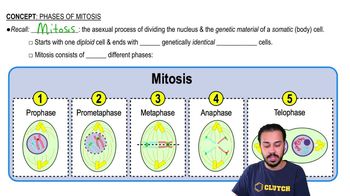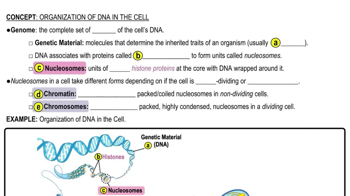Multiple Choice
In a human skin cell that is going through the cell cycle, when do the centrosomes separate?
1899
views
 Verified step by step guidance
Verified step by step guidance



 3:21m
3:21mMaster Phases of Mitosis with a bite sized video explanation from Bruce Bryan
Start learning